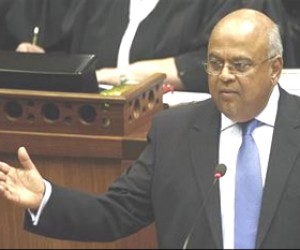Mining strikes in South Africa have so far cost the country’s economy an estimated R10.1 billion in in revenue in the platinum- and gold-mining sectors since the beginning of the year. This is according to Finance Minister Pravin Gordhan’s Medium-Term Budget Policy Statement (MTBPS) he revealed yesterday.
Worse, he also indicated that the country’s declining mining output and the spread of strike activity also depressed activity in related industries, such as manufacturing, logistics and services.
However, he was pleased with the National Union of Mineworkers’ announcement onWednesday that only about 30 000 out of the 70 000 striking mineworkers were still engaging in industrial action.
“We need to make adjustments to improve the living conditions of mine workers, as well as wage negotiations. Business, labour and government will need to work together to improve the circumstances and South Africa’s mining sector and the country as a whole.” He told Engineering News in an online interview.
Gordhan said domestic production, particularly mine output, contributed to the lowering of South Africa’s 2012/13 economic growth projections to 2.5%., Gordhan said before his speech in Parliament.
Platinum-group metals (PGMs) output resulted in a 6.3% decline in real value added in mining in the first half of 2012, compared with the previous corresponding period. The platinum price had fallen by 14.2% to $1 427/oz between February and July, but rebounded above $1 650/oz in September, as strikes limited supply.
In the year to August, mining output fell by 3.3%, with production of PGMs 15.3% lower. However, Chinese demand spurred continued strong growth in iron-ore, offsetting some of the decline in platinum, gold and coal.






